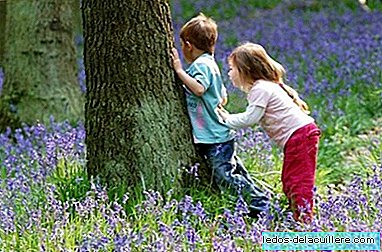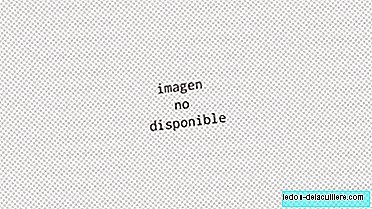
We continue today with the interview that we are doing with Isabel Fernández del Castillo, a specialist in creative learning and in which he is explaining how child thinking works so that we can better respect its development.
We continue, after the first part of this interview, deepening in the cerebral hemispheres and in the way in which the typical thinking of each one happens in childhood, to understand how important it is to allow children to fulfill their own internal calendar.
When we face a problem, for example, a pest in a garden, are there different ways to solve it or to approach the problem as you use one or the other hemisphere?
We must start from the basis that a large part of the problems we face have been caused by us, precisely because of that narrow vision we have. If we do not have a global vision, "side effects" are generated.
How you solve or prevent a pest in a garden is not very different from how you would prevent problems in breastfeeding, childbirth, or any other issue. The holistic mind would say: how does nature do it? What are the favorable conditions for the self-regulation processes to work alone?
Nature is always much more complex than a garden or an orchard.
Sure. In this case, Nature does not have simplified systems to infinity as they are monocultures, which are what we have created, but diverse and complex systems in which the different elements are self-balancing. It would try to imitate that as much as possible, and intervene the essential.
This form of systemic thinking that analyzes the problems taking into account the whole of everything, will it be essential in the future of the human being?
It is always essential, if we are in the paradigm of health promotion (in a broad concept) and prevention. But we are in a typical mechanistic culture of the extreme left hemisphere, unable to see the impact of what it does until the effects are very clear. But in addition, the world is in a special moment, with problems that are side effects of yesterday's "brilliant solutions", and that will be a great challenge for future generations. They are simply going to have to invent something else. More than ever, they need to display their creativity. That is what children do naturally if they are in a favorable environment, they are creative beings "as standard".
Rather than enhance their creativity, should we afford it?
Our mission is to protect your environment so that creativity can flourish, not repress or inhibit it, directly or by allowing you to be exposed to inappropriate and invasive stimuli.
In childhood, which hemisphere works first or rather, what kind of thinking comes first?
The left hemisphere is the one that elaborates and understands the concept, the idea of things, but the idea is reached through experience, which is the learning mode of the right hemisphere.
Before the concept, there will be, of course, the sensory experience, right?
The child, long before reaching the concept, needs to have a direct, physical, sensory, bodily experience of the world.
In the right hemisphere is the ability to feel, it is the basis of emotional intelligence, which is the foundation of other intelligences. And it is expressed through the image, that is why it is so important that they can develop the imagination.
Is he the first to function in childhood thinking?
Yes. The right hemisphere matures before the left in time, both in the uterus and in the first years.
That is why children first of all need affection, a secure attachment, and then have the possibility of experiencing to the fullest in the physical world, of developing their overflowing imagination through play and stories, and leaving more formal school content to when it's really their turn, about six or seven years old. That is what is done in Finland, children start school at age seven, when they are ripe for it. That's why they learn so easily.
If we accept the need for the child, as he has explained to us Isabel Fernández del Castillo in this interview, to enjoy sensory experiences in Nature, we will understand how important it is to change the educational system and make proposals that add a greater respect for the evolutionary rhythm and natural learning of children. Tomorrow we will finish talking with Isabel to better understand the possibilities that the environment offers us to do this.












